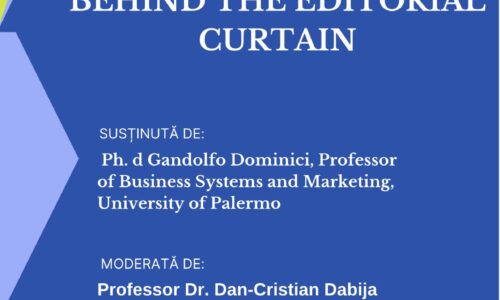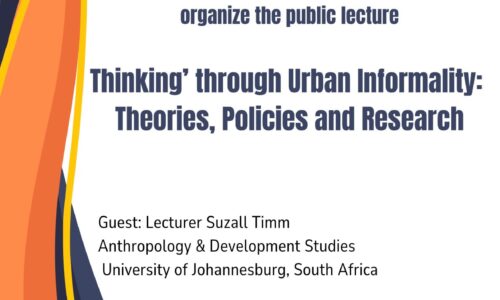Theoretical and methodological issues of International Relations research
Summer Semester Holiday Block BBU Cluj-Napoca September/October 2018
Weekly Block Seminar, optional extras t.b.a.
Seminar sessions 11.00 – 13.15; 14.30 – 16.45; 17.00 – 18.30
TITULAR: Prof.em. Dr.phil. Dr.h.c.mult. Reinhard Meyers
Sandbrink 5
48157 Münster-Handorf
email: meyersr@uni-muenster.de
privat: uniprof@t-online.de
Tel: (0251) 324587
INTRODUCTION
The block seminar focuses on the roles of theories and research methods in International Relations. Students are introduced to basic ontological and methodological concepts and major contending epistemological perspectives on theories and approaches in the field. Furthermore, students will be acquainted with the background debates in the philosophy of the social sciences that undergird different methodological approaches.
The primary aim of the block seminar is to provide an up-to-date overview of the main contemporary debates in the field of international relations theory and methodology against the background of a number of paradigmatic examples.
The secondary aim of the block seminar is to assist students in the choice of the appropriate theoretical and methodological approach for their research project, not to train them in a multitude of research techniques as such. Nearer its end, the block seminar will contain, however, a session on how to construct a research proposal for a Bachelor and/or Master thesis.
[Extra option] The theoretical and methodological knowledge acquired during the seminar week will form the basis for a praxis-orientated conflict management/resolution role game on the last two days of the block, started off by a short half-day overview of principal conflict resolution approaches. After that, the format, roots, and history of a fictitious conflict situation will be set up. Following this, at least two, perhaps also three competing groups of students will be asked to formulate, on the basis of different ontological views of the world, a number of proposals covering the aims, objects, actors, and processes of the management/resolution of that conflict situation. The premises and assumptions of the attempted conflict resolution proposals will have to reflect different theories; the definition and choice of agendas, outcome options, and implementation tools will also have to take into account different methodologies; and the provision of resources as well as the generation of political support will be an outcome of a genuine political debate. At the end of the game, the different proposals should be presented by one or more group speakers to the auditorium total of the seminar, who will then vote on the best proposal.
Competencies to be acquired:
- Acquaint yourself with and understand the research field of International Relations (I.R.)
- Formulate an ontological/epistemological framework to sort and order I.R. theories
- Learn how to apply different theories and models of I.R.
- Identify the scope and limits of different I.R. theories and models
- Learn how to analyze the actors, structures, and processes of international politics with the help of different I.R. theories
- Learn how to develop a project in a team, how to structure the development process, and how to present its results to an auditorium
- Last but certainly not least: improve your English conversation, reading, and writing skills
Timetable:
Monday
- Introduction to the block seminar (1): Seminar structure, learning and assessment aims & requirements, general timetable
- Introduction to the block seminar (2): Where can we find what we want to know? Introductory literature & hints for using your USB stick.
- Basic concepts I: How can we know what we know? The sociolinguistic construction of world views. A simple start.
- Basic concepts II: Concepts, roles, and functions of “theory” in the social sciences
- Basic concepts III: Levels of Analysis and their consequences. Agency vs. structure: mutual exclusivities or dialectical oppositions ?
Tuesday
- Basic concepts IV: The growth of theory – ordering the universe. Ontological and methodological perspectives on I.R.
- Basic Ontologies of I.R. – or the classical trias: From Hobbes via Grotius to Kant ?
- O I: Realism – the shadows of international anarchy: national actors in a zero-sum game system of deterrence and security dilemmas
- O II: Idealism/Liberalism – from cooperation to interdependence: societal actors in a positive sum-game of progress and modernization
- O III: International Society – consensually ordered pluralist anarchical society with rules, norms, and institutions
Wednesday
- Basic Epistemologies of I.R.: Understanding or explaining international phenomena. The methodological controversy between Traditionalism and Scientism
- E I: The traditionalist perspective: Qualitative Analysis, Hermeneutics, Policy Relevance.
- E II: The scientistic or behavioral perspective: Quantitative Methods, Empiricism, Social Science without Values.
Thursday
- E III: To bridge the gap: methodological pragmatism. The inter-paradigm debate and the Neo-Neo-discussion. Anything goes or Feyerabend for Epistemology ?
- E IV: Superstructurally superficial: some methodological consequences of traditional Marxian premisses for the analysis of I.R.; can scientific statements be interest-free?
- Excursio: Unequal exchange, dependency, and core-periphery relationships: an alternative world view
Friday
- I: The epistemology and methodology of post-modernism: how to describe the undescribable… – or: the post-modern critique of methodological traditionalism: the anti-foundationalist deconstruction of internationalist meta-narratives
- II: Excursio: Feminist perspectives in I.R. analysis – man maketh war…[??]
- III: The meaning, condition, and means of (international) order creation: global governance without global government ? Or: what is underneath the Emperor’s new clothing ??
Saturday
Open end: time [ca.3 hrs.] and venue to be arranged among interested participants
- Methodological Eclecticism in I.R. research – how to find, map out, and defend an interesting research question – or: From scrap-paper file box to computerized mind-mapping: hints from a practitioner.
Extra Option A
Sunday
Rest and recreation and recommended reading
Monday
I) Contemporary Conflict Resolution. Principles, Methods, Approaches
II) Setting up the Role Game: Peace Making in Slivonia
- What is a role game ?
- Assumptions, Premisses, Agenda
- Roles and Role Players
- Structure
- Distribution of Roles
III) Timetabling the Role Game: Who does what, when, and how, to whom ? The dialectical structure of antagonistic cooperation
Optional: internal deliberations of players’ groups/coalition making. Venue: Ursus Beergarden (weather permitting)
Tuesday
Role Game: Peace Making in Slivonia. The prospects and disappointments of ethnic conflict resolution
Extra Option B
Alternatively to A), I would be also willing to give up the free Sunday and start the role game one day earlier, so that the whole program inclusive role game would finish on the Monday rather than the Tuesday evening.
If the Faculty for whatever reason would decide against any of the alternatives, the block could already finish early Saturday afternoon.
*The final choice is up to the Faculty.
Assignments & grading:
General oral participation in class – 20%
Seminar paper on the premises, assumptions, characteristics, performance, achievements, and consequences of a particular theory/approach/method for I.R. analysis – 80% OR
Outline/disposition/research proposal for a Bachelor or Master thesis on a subject of your choice based on an assessment of the relevant secondary literature and a discussion of the research methods to be used – 80% OR
Critical analysis of your and your groups’ behavior in the role game (with reference to premisses & assumptions, definition of aims, agenda setting, negotiation, competition, game outcome, implementation of game results, achievements of game, feedback for a possible round II)
Please hand in your written contribution – either in paper form or as a commentable PDF file – to my address above at the latest two to three weeks before you need your seminar grade
Introductory literature:
- For a very brief, classical overview: Stephen van Evera: Guide to Methods for Students of Political Science. Ithaca: Cornell U.P.1997
- More extensive, deeper-going analyses in Vivien Lowndes/David Marsh/Gerry Stoker (eds.): Theory and Methods in Political Science. 4th ed., Basingstoke: Palgrave Macmillan 2018.
- First Aid Conceptual Toolbox: Robert L. Miller/John D. Brewer (eds.): The A – Z of Social Research. A Dictionary of Key Social Science Research Concepts. London: Sage 2003
Perspectives on and Theories of International Relations:
- Robert Jackson/Georg Sorensen: Introduction to International Relations. Theories and Approaches. 6th Oxford: Oxford UP 2016.
- Tim Dunne/Milja Kurki/Steve Smith: International Relations Theories. Discipline and Diversity. 4th ed. Oxford: Oxford UP 2016.
- Knud Erik Jorgensen: International Relations Theory. A New Introduction. 2. Aufl. London: Palgrave Macmillan 2018
- Additional material to cover the individual syllabus sections mentioned above will be presented to participants in electronic form on a seminar stick.
And for German Speakers:
- Nicole Deitelhoff/Michael Zürn: Lehrbuch der Internationalen Beziehungen. Per Anhalter durch die IB-Galaxis. München: C.H.Beck 2016
- Frank Sauer/Carlo Masala (Hrsg.): Handbuch Internationale Beziehungen. 2. Auflage Wiesbaden: Springer VS 2017 [Springer Reference Sozialwissenschaften, 1172 S. !!]
Conflict Management/Conflict Resolution:
- Oliver Ramsbotham/Tom Woodhouse/Hugh Miall: Contemporary Conflict Resolution. The prevention, management and transformation of deadly conflicts. 4th Cambridge: Polity Press 2016
- Hugh Miall/Tom Woodhouse/Oliver Ramsbotham/Christopher Mitchell (eds.): The Contemporary Conflict Resolution Reader. Cambridge: Polity Press 2015
- Jacob Bercovitch/Richard Jackson: Conflict Resolution in the Twenty-first Century. Principles, Methods, and Approaches. Ann Arbor: University of Michigan Press 2009


